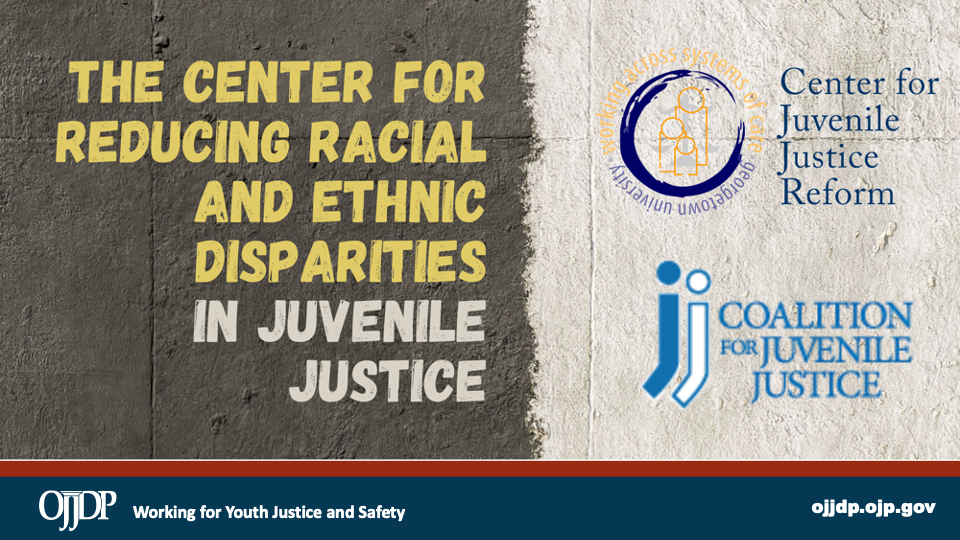About Us

The Center for RR/ED is a collaboration between the Center for Juvenile Justice Reform (CJJR), and the Coalition for Juvenile Justice (CJJ).

The Center for Juvenile Justice Reform at Georgetown University supports and educates leaders across systems of care to advance a balanced, multi-system approach to improving outcomes for, and promoting the positive development of, youth at risk of juvenile justice involvement.
A research center within the McCourt School of Public Policy, the Center is in a unique position to provide strong and sustained national leadership in identifying and highlighting the research on policies and practices that work best to reduce delinquency and achieve better outcomes for this nation’s children. A particular focus of the Center is on youth known to both the child welfare and youth justice systems, also referred to as “crossover youth.” The Center works to focus the nation’s youth justice and related systems of care on the key principles embodied in a research-based youth justice reform agenda, utilizing a multi-system approach.

The Coalition for Juvenile Justice (CJJ) is a nationwide coalition of State Advisory Groups (SAGs), organizations, individuals, youth, and allies dedicated to preventing children and youth from becoming involved in the courts and upholding the highest standards of care when youth are charged with wrongdoing and enter the justice system. CJJ envisions a nation where fewer children are at risk of delinquency; and if they are at risk or involved with the justice system, they and their families receive every possible opportunity to live safe, healthy and fulfilling lives.
CJJ’s substantive areas of work include:
- Promoting evidence-informed policies and practices in delinquency reduction and prevention;
- Educating the public and advising federal policymakers on state and local juvenile justice issues;
- Assisting the states (including territories and the District of Columbia) in meeting the core requirements of the Juvenile Justice and Delinquency Prevention Act;
- Improving racial/ethnic fairness, accessibility, and overall quality of community and court-based policies and practices; and
- Linking national, state, and local advocates and organizations to pursue a common mission.
